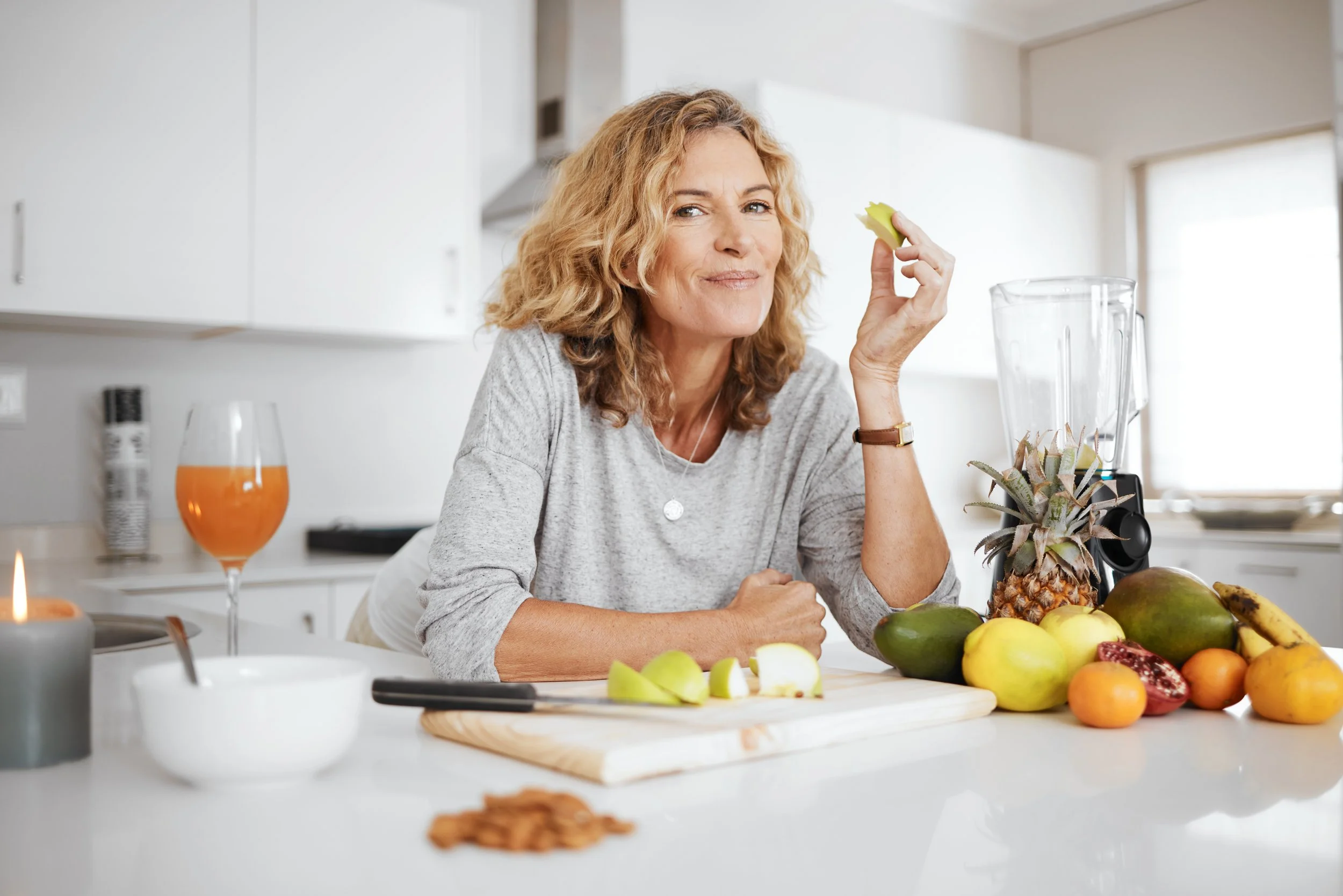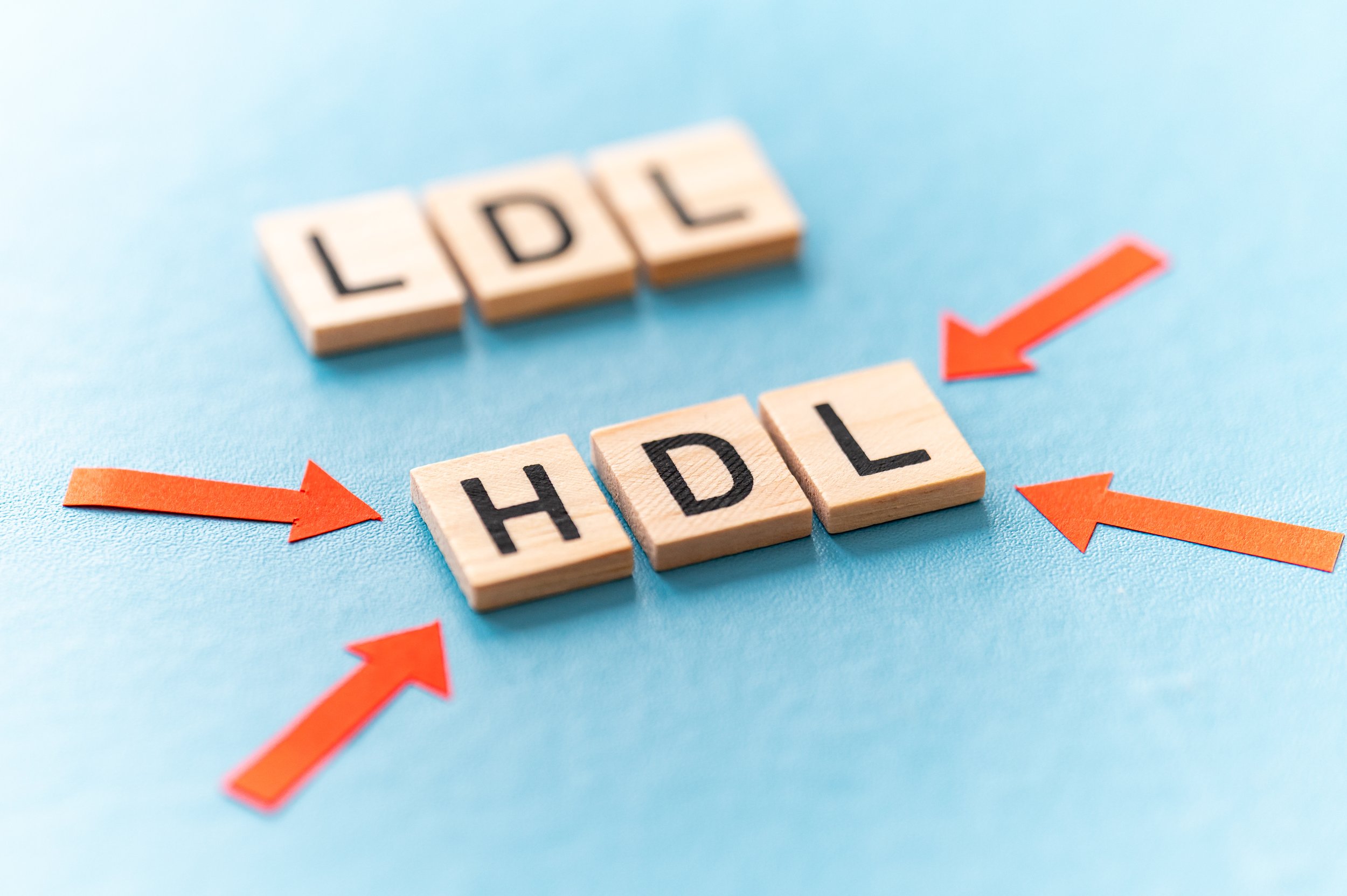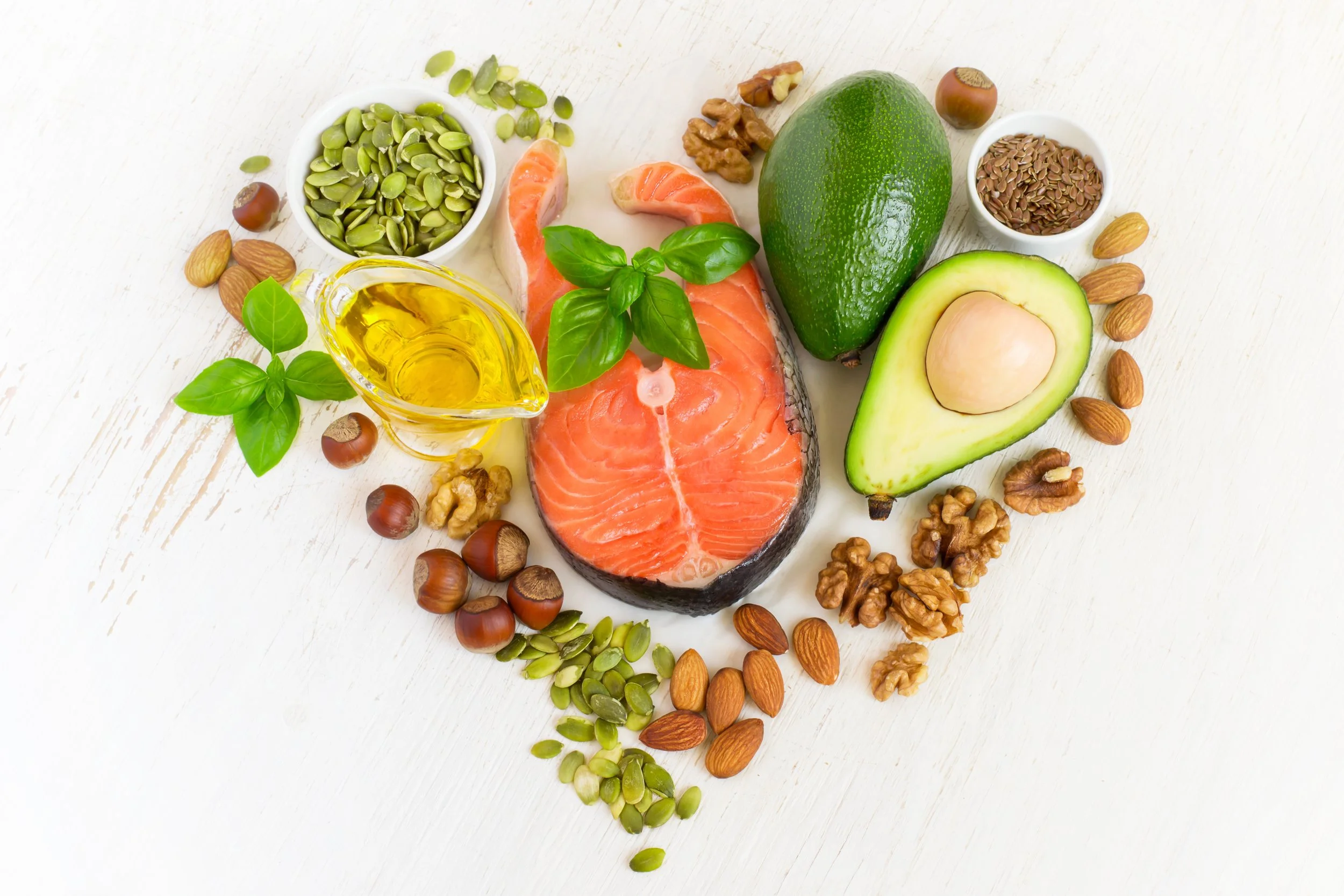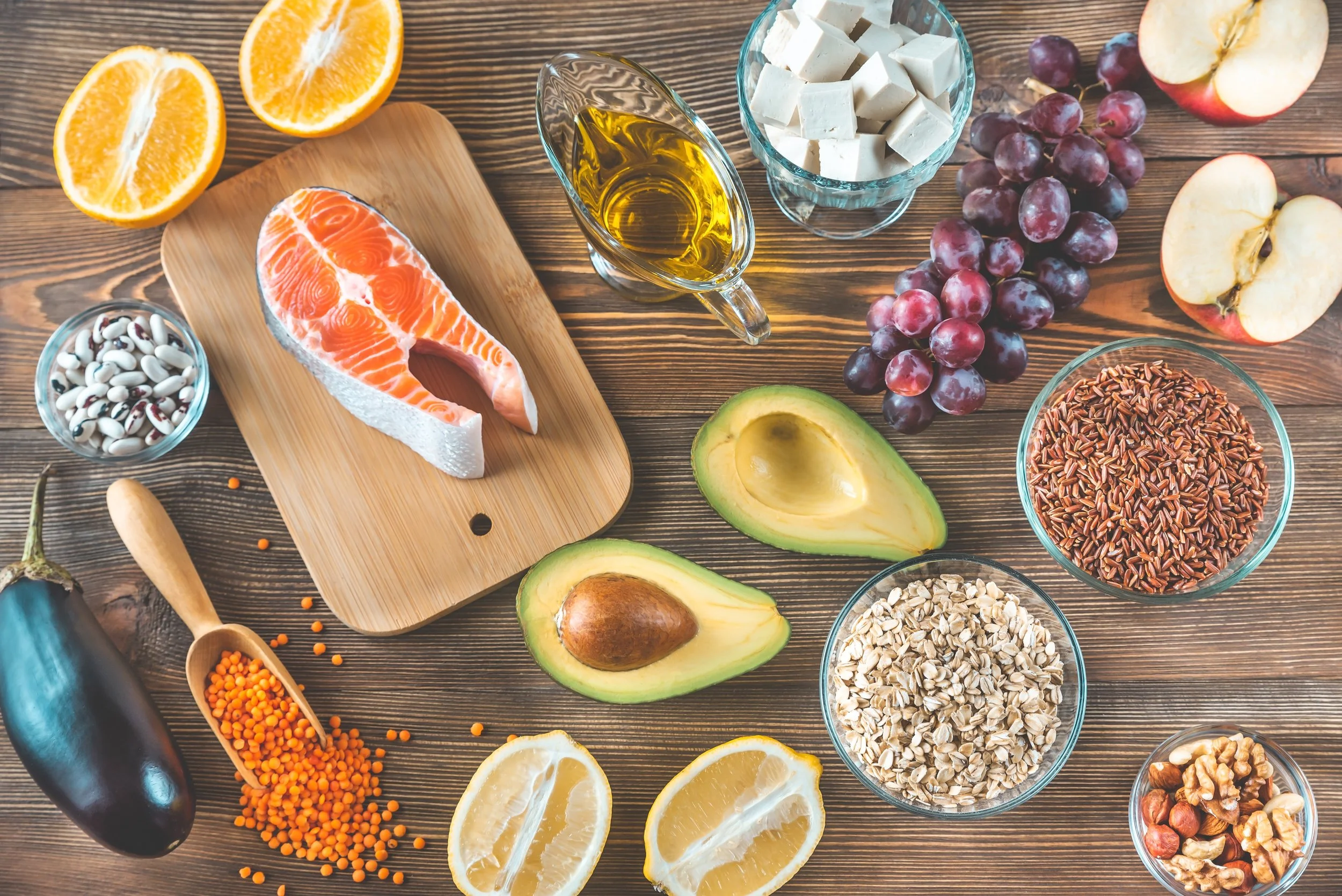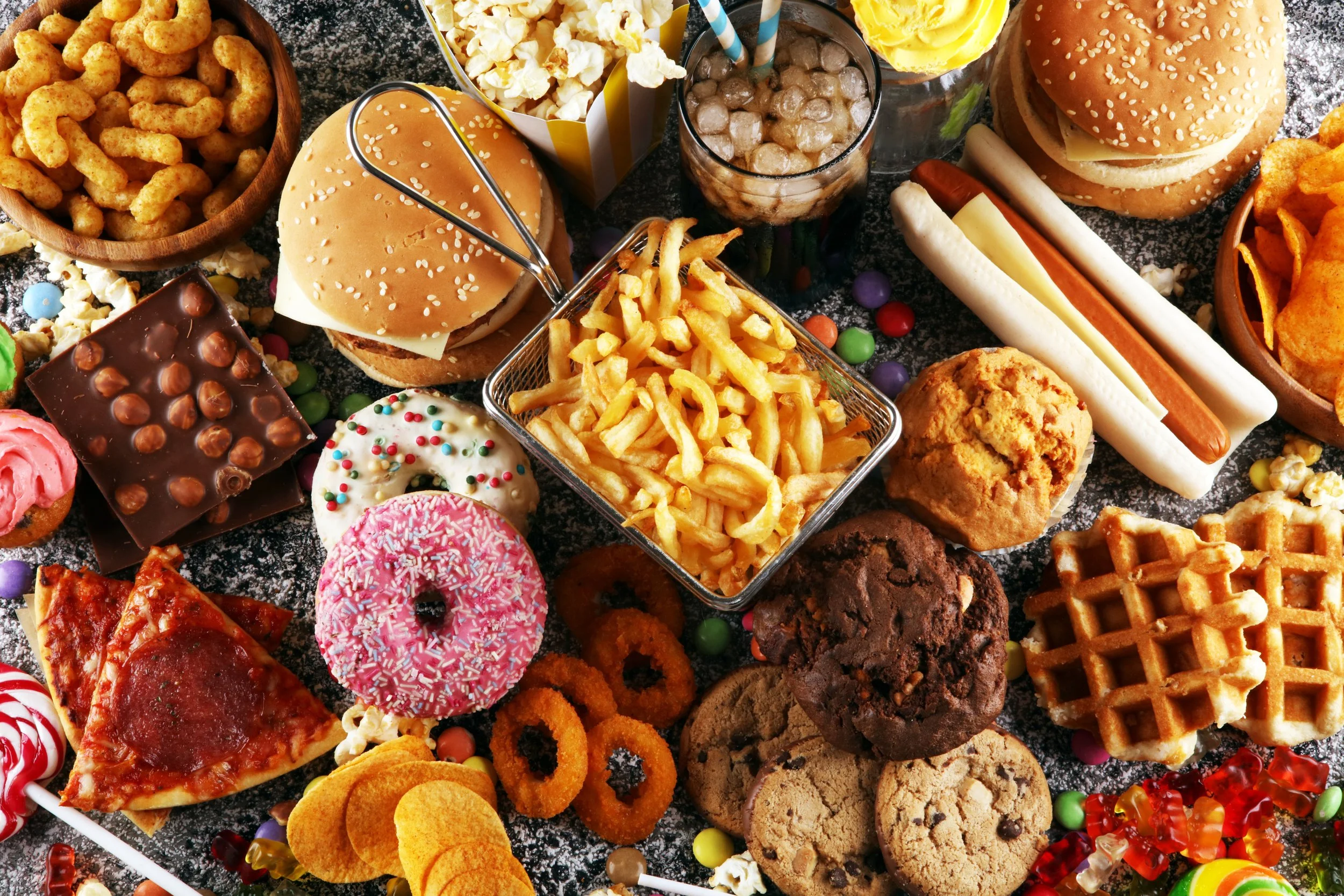High Cholesterol in Menopause: The Best and Worst Foods for Women Over 40
Many women are surprised to see their cholesterol creep up during their forties and fifties. You may be eating the same way you always have, yet your blood test suddenly shows high cholesterol. It can feel unsettling but it is also very common. The good news is that food choices have a powerful effect on cholesterol levels and small changes can make a big difference.
In this stage of life your hormones shift and these changes affect your heart health, metabolism, and how your body handles fats. Oestrogen naturally supports healthy cholesterol levels. As it declines through perimenopause and menopause your LDL cholesterol may rise. This does not mean you have done anything wrong. It simply means your body needs more support.
This guide will help you understand which foods to enjoy, which to limit, and which everyday ingredients can naturally improve your cholesterol. These are practical solutions that work in real life.
Why Cholesterol Can Rise After 40
Many women are told cholesterol is only about diet. It is not. Hormones and metabolism play a large role. Here is what happens.
• Oestrogen protects your arteries and helps keep LDL cholesterol in check. When levels fall this protective effect weakens.
• Insulin resistance becomes more common which can raise triglycerides.
• Stress hormones rise and this can affect how fats are used in the body.
• Sleep disruption and hot flushes can push up inflammation which impacts heart health.
• Loss of muscle mass slows metabolism which also affects blood fats.
This is why high cholesterol in midlife is not a failure. It is a sign your body is moving into a new stage and needs more targeted support.
The Best Cholesterol Lowering Foods
These foods work with your body to help lower cholesterol in a natural and effective way. Look for fibre rich foods, heart healthy fats and ingredients that support your liver.
1. Oats and Barley
These are rich in beta glucans which help remove cholesterol from the gut. Enjoy porridge, oat bran, barley soups, or sprinkle oats on yoghurt.
2. Beans, Lentils and Chickpeas
Soluble fibre binds cholesterol and supports a healthier balance. Add beans to salads or enjoy lentil soups and curries.
“Fibre rich foods like oats, beans and flaxseed are more powerful for cholesterol than most people realise. Small daily habits truly can help change your numbers.”
3. Ground Flaxseed
A simple daily spoonful can help lower LDL. Add it to yoghurt, porridge, or smoothies.
4. Olive Oil
Choose it as your main cooking oil. The monounsaturated fats support HDL cholesterol and help calm inflammation.
5. Almonds and Walnuts
Regular intake is linked to healthier cholesterol levels and better heart health.
6. Oily Fish
Salmon, sardines, trout, and mackerel contain omega 3 fats which lower triglycerides and support cardiovascular health.
7. Psyllium Husk
A concentrated soluble fibre that can reduce LDL when taken consistently.
8. Plant Sterols and Stanols
Found naturally in nuts, seeds, vegetables, and some fortified foods. These help block cholesterol absorption.
These foods are simple to add to your meals and do not require restrictive diets. Consistency matters more than perfection.
Everyday Ingredients That Can Help Lower Cholesterol Naturally
Some foods work quietly in the background to support your cholesterol and cardiovascular health. These are easy additions.
• Garlic
• Avocado
• Apples and pears
• Carrots
• Pumpkin seeds and sesame seeds
• Fibre rich vegetables like broccoli and Brussels sprouts
Building meals around whole foods is one of the most effective ways to support cholesterol and hormone balance.
Foods That Seem Healthy but Can Raise Cholesterol
This is where many women get caught out. Some foods look nourishing but can work against your cholesterol.
1. Coconut Oil
Promoted as healthy but high in saturated fat which raises LDL in many women.
2. Granola and Cereal Bars
Often contain sugar, honey, syrups, and refined oils. These raise triglycerides.
3. Plant Based Ready Meals
Vegan does not always mean healthy. Many contain refined oils and additives.
4. Flavoured Yoghurts
Packed with added sugar which affects blood fats and inflammation.
5. Smoothies and Juices
High in free sugars which push up triglycerides.
Choosing minimally processed food helps you avoid these pitfalls.
Practical Tips for Women
Small changes can add up quickly.
• Add two portions of soluble fibre daily such as oats and beans
• Include oily fish two to three times each week
• Use olive oil as your main fat
• Add nuts or seeds most days
• Limit sugar, refined snacks, ultra processed foods, fizzy drinks and deep fried foods
• Keep stress in check with breathing or gentle movement
• Support sleep which also affects cholesterol and metabolism
These habits support cholesterol, hormone balance, energy, mood and long term health.
“Your cholesterol often rises when oestrogen falls. It is a natural shift, not a personal failure.”
High cholesterol in midlife is not a sign of failure. It is a natural shift influenced by hormones and metabolism. With the right foods, daily habits, and support, your cholesterol can improve and your energy and focus can rise again. Women often respond very well to nutrition and lifestyle strategies that are realistic and sustainable.
If you want more practical help, my book Have a Magnificent Menopause and my 21 Day Body Reboot and Reset Programme offer step by step guidance for women who want to feel and look great again.
References
Aramburu, A. et al. (2024) ‘Effect of reducing saturated fat intake on cardiovascular outcomes: an umbrella review of meta analyses of randomised controlled trials’, Frontiers in Public Health, 12, 1396576.
Arnesen, E.K. et al. (2023) ‘Consumption of nuts and seeds and health outcomes: a systematic review and meta analysis’, Food and Nutrition Research, 67, 8961.
Glenn, A.J. et al. (2023) ‘Portfolio diet score and risk of cardiovascular disease: results from three prospective cohort studies’, Circulation, 147(22), pp. 1703–1713.
Glenn, A.J. et al. (2023) ‘Nuts and cardiovascular disease outcomes: a review of the evidence and future directions’, Nutrients, 15(3), 642.
Jacobo-Velázquez, D.A. et al. (2025) ‘Functional foods for cholesterol management: a review of current evidence and future perspectives’, Nutrients, 17(16), 2648.
Jovanovski, E. et al. (2023) ‘Are all fibres created equal with respect to lipid lowering? A systematic review and meta analysis’, British Journal of Nutrition, 129(11), pp. 1984–1999.
Lichtenstein, A.H. et al. (2021) ‘2021 dietary guidance to improve cardiovascular health’, Circulation, 144(23), e472 to e487.
Llanaj, E. et al. (2022) ‘Effect of oat supplementation interventions on cardiovascular disease risk markers’, European Journal of Nutrition, 61(6), pp. 2929 to 2950.
Poppitt, S.D. et al. (2023) ‘Include oats, barley and soluble fibre in your diet: a randomised crossover trial’, Nutrition, Metabolism and Cardiovascular Diseases, 33(3), pp. 600 to 609.
Schoeneck, M. and Iggman, D. (2021) ‘The effects of foods on LDL cholesterol levels’, Clinical Nutrition, 40(6), pp. 3133 to 3145.
Trautwein, E.A. et al. (2018) ‘LDL cholesterol lowering of plant sterols and stanols’, Nutrients, 10(9), 1262.
Wolever, T.M.S. et al. (2021) ‘An oat beta glucan beverage reduces LDL cholesterol’, Journal of Nutrition, 151(12), pp. 3833 to 3843.

